By Debbie Swanson
Feline stomatitis may sound like a digestive disorder, but it’s not an illness of the stomach. “Stoma” is a zoological term that refers to the mouth, and feline stomatitis is really a painful, inflammatory disease of a cat’s gums and mouth.
Veterinarians are not certain what causes the ailment, and no definitive course of treatment exists. Cats with feline stomatitis often face several visits to the vet in order to manage the problem and live pain-free.
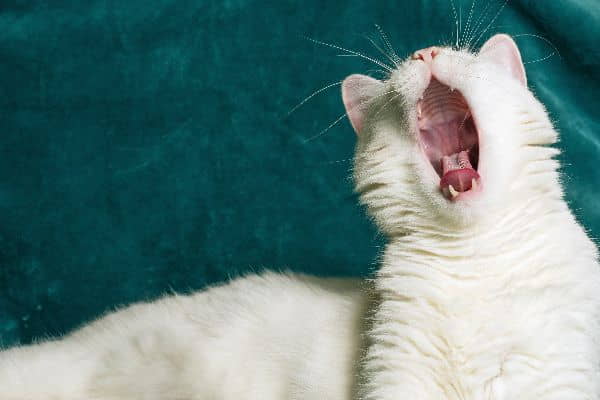
Symptoms
Stomatitis in cats symptoms are mainly extreme oral pain. Your cat might demonstrate this in any or all of the following ways:
- Pawing at his mouth or rubbing his face against furniture
- Drooling; the drool may be tinged with blood
- Cat won’t eat, or trying to eat, but stopping abruptly or crying when eating
- Ceasing to groom himself
Because the pain makes eating difficult, your cat could be losing weight. In addition, his breath will smell bad, and his gums may look red and inflamed.
You also may notice other behavioral changes: Your cat may act aggressively, particularly when you touch him or offer food. He may hide under furniture, an instinctive reaction (in the wild, an injured or ill cat takes cover to avoid becoming a target for predators).
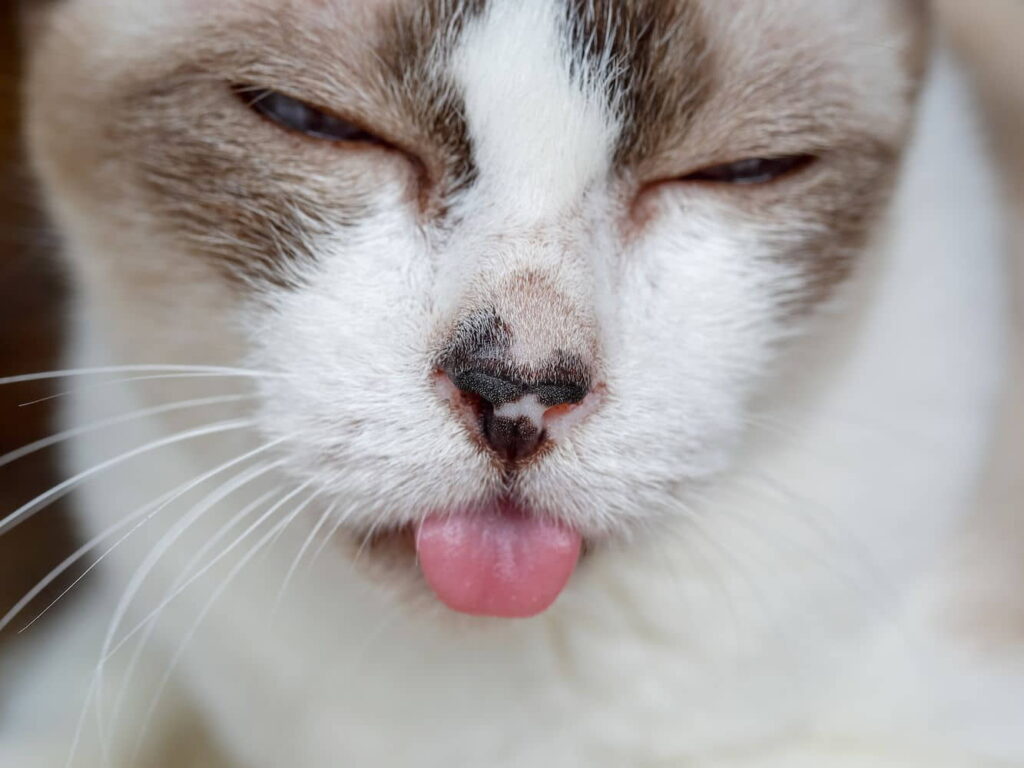
Diagnosing
If your cat exhibits these symptoms, take him to the vet immediately. In order to do a complete exam, your vet will most likely give your cat a general anesthetic. This may be the best way to examine your cat since the necessary manipulation of your cat’s mouth without anesthesia would be much too uncomfortable.
Upon examination of your cat’s mouth, your vet may see red, inflamed gums that bleed easily. She may also spot sores or lesions on the gums, roof of the mouth, and back of the throat. She will take X-rays to check for damage to the teeth and may do a tissue biopsy to rule out other conditions.
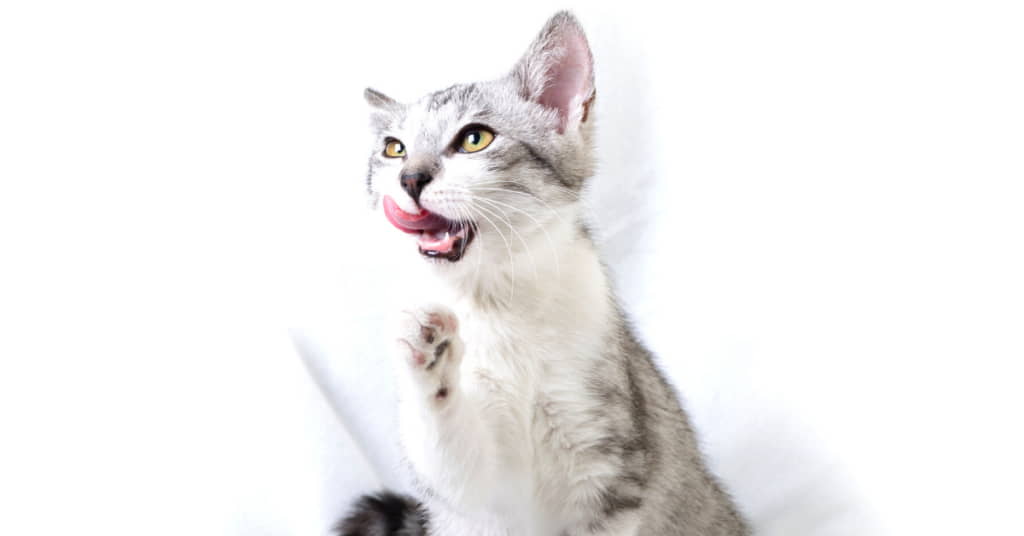
Causes
The cause of feline stomatitis is not known. Veterinarians have proposed a few theories, though:
The cat may be extremely sensitive to normal dental plaque. His immune system may overreact, resulting in inflammation. (This is one of the more widely accepted theories.)
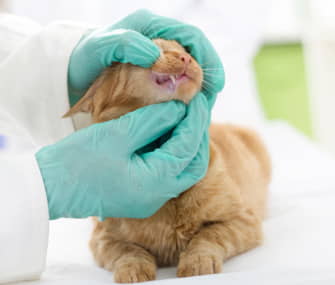
The cat may have a suppressed immune system due to stress or another illness, such as the feline leukemia virus.
Certain breeds may be especially susceptible. Some researchers say feline stomatitis is common among Siamese, Himalayans, Persians, and Somalis, though it is also seen in domestic short-haired and long-haired cats.
Because we don’t know what causes feline stomatitis, it’s hard to prevent the condition. Routine dental care is always recommended to keep up your cat’s health.
Treatments
Medication administered by your vet: Pain management is vital for cats with feline stomatitis. Your vet will try to give your cat some relief through anti-inflammatory steroids. She may also prescribe antibiotics to treat the infection and reduce bacteria.
Because your cat’s mouth is so painful, your vet will most likely inject the initial doses. Follow-up appointments for medication may be necessary until your cat is able to take it by mouth.
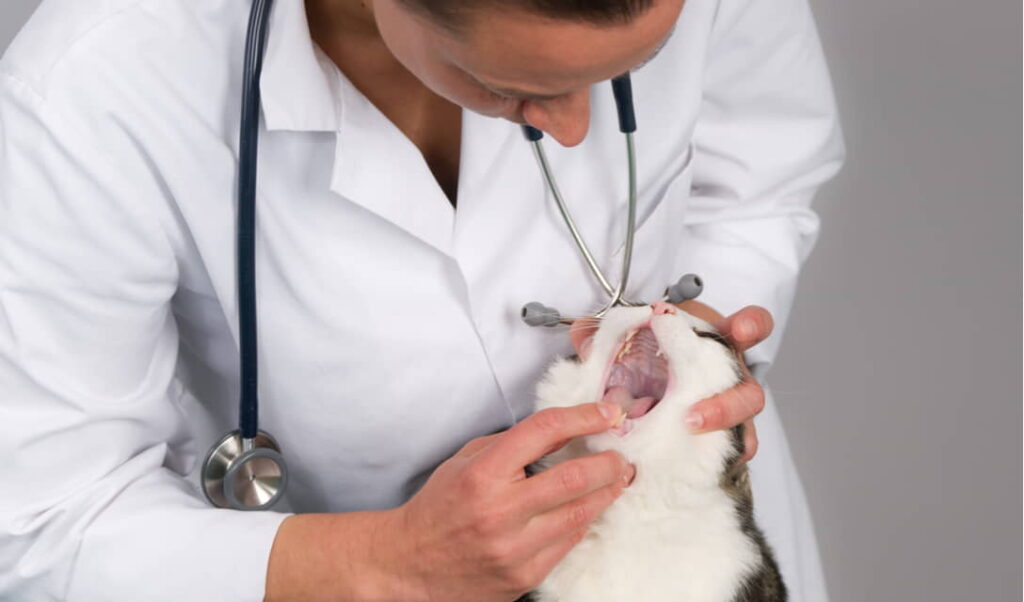
Medication administered in the home: Once your cat is able to take medication at home, be sure to ask your vet for specific instructions for administering it, as your cat’s mouth will still be tender. Mixing the medication into wet food may make it easier for your cat to swallow. If he avoids taking the medication orally, be sure to call your vet.
Cleaning your cat’s teeth: Your vet will also want to give your cat a professional dental cleaning that includes cleaning the tooth under the gum line. After that, she’ll most likely recommend that you come back for periodic professional cleanings and also regularly brush your cat’s teeth at home (you will have to wait until your cat’s pain has subsided before you brush his teeth, however).
Surgery: In severe cases, your vet may want to surgically remove teeth and inflamed tissue. Some vets feel it is best to do extractions early in treatment, while others prefer to see how the cat responds to the medication. Fairly soon after the surgery, many cats are able to eat soft food, and once they’ve healed, manage to eat dry kibble. After they’ve recovered from oral surgery, most cats resume a normal, pain-free life.
Dietary supplements: If your cat has lost substantial weight, or if his health has been compromised because of his inability to eat properly during the illness, your vet may suggest dietary supplements. These may be given orally after your cat’s initial pain has subsided.
Feline stomatitis could be one of the most painful conditions a cat faces, but with early detection, effective treatment, and regular dental care, your cat can resume a standard life.
Wondering about Subtle Signs Symptoms Your Cat Is Sick? Check it out on our lastest post!


0 Comments